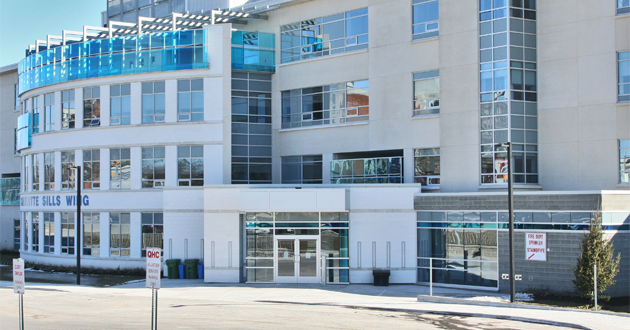QNet News profiles different hospital models emerging in Ontario
BELLEVILLE – Quinte Health Care is changing the model of the services it offers at its hospitals. That much has been heard a lot lately. But what we don’t know is how the four hospitals it operates will change.
QHC vice-president Katherine Stansfield addressed the issue during a live chat hosted by QNet News on Monday night. Stansfield had a lot of interesting things to say about the health care changes, but a lot of it revolved around different hospital models that have emerged in Ontario. Stansfield specifically mentioned three hospitals:
– Women’s College Hospital in Toronto where there are no inpatient beds or emergency room
– Markdale Hospital in Markdale which features a small number of beds and 24/7 emergency room
– Hotel Dieu in Kingston which offers an urgent care centre and ambulatory care
Susan Rowe, the QHC’s director of communications, cautioned that Stansfield didn’t mean that QHC is looking at any particular model
“(Stansfield) was just throwing out some different examples of how other hospitals have redefined what it means to be a hospital,” said Rowe.
Rowe added hospitals are becoming more creative in responding to unique community needs. For the Quinte area, that’s the age of the population.
“We are certainly more elderly and we have more chronic diseases than anywhere else in Ontario,” Rowe said.
The idea behind the change in services comes from the transition in Ontario over the last ten years from strictly in-hospital services to more home care.
In this article, and others to follow, QNet News takes a closer look at the three models Stansfield mentioned.
The first is Hotel Dieu in Kingston.
The 170-year-old hospital is one of two completely ambulatory care hospitals in Ontario.
Ambulatory care is “specialized care that can include a scheduled visit, so most of our appointments are by referral, scheduled visits to one or more hospital clinics, diagnostic or procedural areas,” said Elizabeth Bardon, chief of public relations for the hospital.
Bardon goes on to say as an ambulatory care hospital, Hotel Dieu doesn’t have any beds because they don’t have inpatients (patients admitted to hospital).
“Everything that we do is on an outpatient basis. So people would come in and have a clinic visit or surgery or procedure and then go home,” Bardon explained.
While ambulatory care does address urgent issues, it usually deals with less-critical problems than you would see in the emergency room. And it does so in a clinical setting.
She gives an example of an individual who would go to their family doctor. The doctor believes the person has diabetes, so he or she would then send them on to Hotel Dieu to the diabetes management centre at the hospital. The individual would meet with a nurse to talk about how to test their blood, they would meet with a dietician to learn how to eat properly for diabetes and they would go to education classes to learn how to shop for diabetes.
“It’s a different kind of thing. Our programs are all referral-based. So for a patient like that, you have a new disease that is actively symptomatic and you need help with that, so that’s what we call an acute level of care. We don’t have emergency, but it doesn’t mean there aren’t urgent things.”
What’s special about Hotel Dieu, Bardon explained, is that patients can be treated without having to be admitted into the hospital.
Hotel Dieu was a regular hospital up until 1997. At that time, the three hospitals in Kingston – Hotel Dieu, Kingston General Hospital and Providence Care – got together and decided that because all three provided specialized care, they were duplicating efforts.
“That was the point where we said ‘we’ll do the ambulatory stuff and KGH, you do the inpatient stuff and Providence Care, you do the long-term care and the rehabilitation’.”
Bardon, who has worked at Hotel Dieu for 18 years, said the change has been effective.
“Because we work as part of a system, but we don’t duplicate efforts.”
 Print This Post
Print This Post







